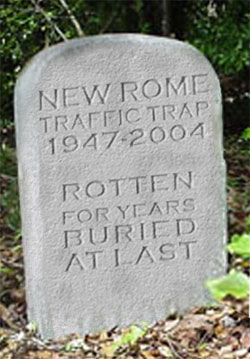The New Orleans Police Department has been rocked by successive scandals during the past several years: an officer was convicted in April 1996 of hiring a hit man to kill a woman who had lodged a brutality complaint against him and another officer was convicted in September 1995 for robbing a Vietnamese restaurant and shooting, execution style, a brother and sister who worked there, as well as an off-duty officer from her precinct working as security at the restaurant. In addition, at least fifty of the 1,400-member force have been arrested for felonies including homicide, rape, and robberies since 1993.1 As astutely noted by police abuse expert Prof. James Fyfe, some cities' police departments have reputations for being brutal, like Los Angeles, or corrupt, like New York, and still others are considered incompetent. New Orleans has accomplished the rare feat of leading nationally in all categories.2
The U.S. Justice Department, hardly an overeager interloper, has been so alarmed by the corruption that it has assigned two FBI agents to work at the department to help reform its internal affairs division, while the Justice Department's civil rights division is conducting an investigation under its new civil powers, allowing the Justice Department to bring civil actions against cities and their police departments if they engage in a "pattern or practice" of rights violations.3 New Orleans also had the highest ranking of citizen complaints of police brutality in the country, according to a 1991 Justice Department report.4 Yet, despite its abysmal record, the police department has avoided the widespread community protests or other sustained external pressure that are often necessary for reforms to take hold permanently.
After a white officer was killed in November 1980, mobs of police officers went on a rampage in Algiers, a black section of town, killing four and injuring as many as fifty residents. Some of the victims were tortured, including two who were dragged to swamps where the officers carried out mock executions. The violence led to the resignation of the police superintendent, an outsider hired to reform the department - a departure welcomed by many department insiders opposed to reform.8 Three homicide detectives were convicted on federal criminal civil rights charges.
History repeated itself on March 22, 1990, when Adolph Archie, an African-American, was accused of killing a white officer, Earl Hauck, during a shootout downtown. On the way from the scene of the shooting to the hospital, the police transporting Archie, who had been injured during the incident, took twelve minutes to travel seven blocks. When they arrived at the hospital, approximately one hundred officers were waiting for them after hearing that Hauck had died. During this period, officers were broadcasting death threats against Archie over police radios. Those transporting Archie, including a close friend of Hauck's, stated later that they thought there could be a lynching at the hospital where the officers continued to threaten Archie. The officers transporting Archie decided not to enter the hospital, but instead of following department policy and taking him to another hospital, they drove him to Hauck's police station. At the station, officers claimed there was a scuffle with Archie, and that he slipped and fell. The station's sergeant denied ever seeing the officers or Archie and did not raise questions about the bloodstains that appeared on the floor; instead he simply ordered a trusty to clean them up.9
By the time Archie got to a doctor, he had been beaten severely, yet no officer was held accountable then or later.10 Once they got to the hospital, events became more confused. Some of Archie's hospital x-rays, showing his injuries, reportedly vanished. Medical staff were unable to determine Archie's name or his background (even though officers knew his name) and injected him with iodine for a medical test, to which he was allegedly allergic, leading some to conclude this had killed him. Two pathologists said he was beaten to death, and it was reported that he had exacerbated his condition by pulling out tubes in his throat at some point and that the injuries to his throat prevented breathing without them. His death was ultimately called a "homicide by police intervention" by the coroner's office.11
In a settlement with the city, Archie's family was paid $333,000, with one-third designated for the family of Officer Hauck.12 According to all reports, no officers were criminally prosecuted or administratively sanctioned; in fact, within hours of Archie's death, then-Superintendent Warren Woodfork cleared all the involved officers of any departmental violations.13 It was also reported that the rookie officer who initially apprehended Archie and did not shoot him on the spot, was vilified by fellow officers for his restraint.14
In a May 1993 report requested by then-Mayor Sidney Barthelemy - one of several reports detailing problems in the police department and recommending changes that were ignored until subsequent, high-profile cases - the advisory committee on human relations found that some officers behaved brutally and that the department's efforts to control them were "halfhearted and ineffectual."15 The committee found a relatively small percentage of bad officers, but its chairperson noted: "[T]he police department itself helps to cover up such people through the code of silence, and anyone who rats on another guy will find himself never promoted. Those signals come from the top and work their way down."16 Among its scores of recommendations, the report called for: public, quarterly reports containing the number of complaints and type, race of all parties, final disposition and reasons; civilian involvement in disciplinary decisions; stricter rules regarding off-duty employment; and publication of the number of civil lawsuits and how they were resolved.17



